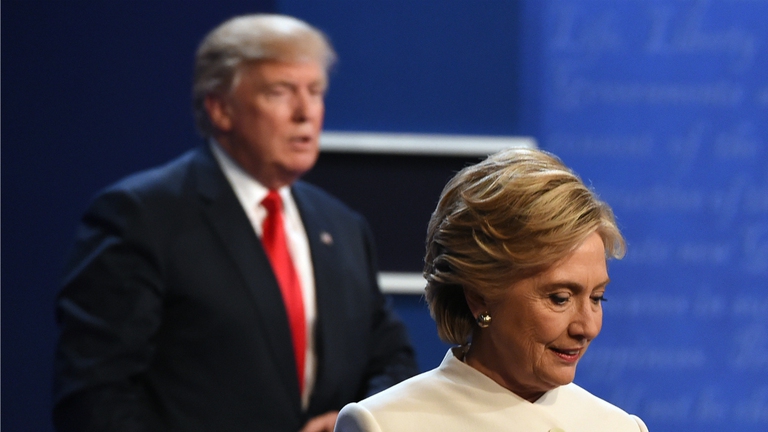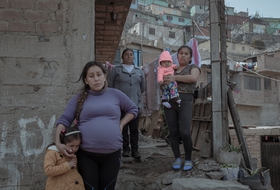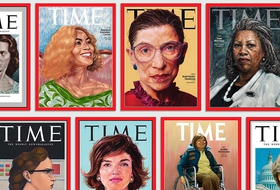
One in three women have suffered physical or sexual violence. With contributions from Europe, Africa, Asia and Latin America, we look at how this shadow pandemic affects every corner of the world.
The two web giants have been sharply criticised for spreading fake news that influenced the Trump-Clinton presidential debate. And now they’re taking remedial action.
Google and Facebook, two of the world’s biggest web companies, have announced that they will take action against the spread of fake news on the internet. The companies based in the Silicon Valley took this decision following strong criticism over how this phenomenon partially influenced the outcome of the US presidential elections, according to many observers.
Google announced it updated its policy to clamp down on fake news sites: “Moving forward, we will restrict ad serving on pages that misrepresent, misstate or conceal information about the publisher, the publisher’s content or the primary purpose of the web property”.
Facebook, on its part, updated the language in its Facebook audience network policy. The policy already stated it banned ads in sites that spread “misleading or illegal content”, and now it also clarifies that the ban also applies to fake news. “Our team will continue to closely vet all prospective publishers and monitor existing ones to ensure compliance”, Mark Zuckerberg said in a statement.
Facebook was accused to be the perfect vehicle of false information because its algorithm tends to expose posts with the most shares and engagements, no matter their accuracy. The fake articles appeared during the presidential campaign may have contributed to the popularity of the newly-elected US president Donald Trump. According to a recent analysis conducted by the American website Buzzfeed, anti-Clinton fake articles spread on the internet during the presidential campaign almost double the amount of anti-Trump fake news items. The most uproarious fake news release was the one on the democratic candidate’s health that would have convinced many people not to vote for her.
Siamo anche su WhatsApp. Segui il canale ufficiale LifeGate per restare aggiornata, aggiornato sulle ultime notizie e sulle nostre attività.
![]()
Quest'opera è distribuita con Licenza Creative Commons Attribuzione - Non commerciale - Non opere derivate 4.0 Internazionale.
One in three women have suffered physical or sexual violence. With contributions from Europe, Africa, Asia and Latin America, we look at how this shadow pandemic affects every corner of the world.
The Istanbul Convention against gender-based and domestic violence marks its tenth anniversary. We look at what it is, who its signatories are, and what the future might hold.
European Commission President Ursula von der Leyen reminded us of the gravity of violence against women around the world, and of the Istanbul Convention’s utmost importance.
President Erdoğan has pulled Turkey out of the Istanbul Convention, key in the fight against gender violence, claiming that it favours the LGBT community rather than family values.
Violence against women in Peru has increased as a result of Covid-19 lockdowns. 14,912 people were reported missing from January to November 2020, more than half of them minors and 64 per cent women. People have been confined to their homes for months, many forced to endure poor physical, economic and social conditions. A situation that
Joys Estefani Qqueccaño Huamani, 24, disappeared from her rural community in Peru on 9 October. Her family began looking for her independently of the authorities and despite the resistance of relatives of Joys Estefani’s ex-partner Arturo Ccana Condori, 32, charged with committing violence against her on 28 September, eleven days before Joys Estefani disappeared. Photos
Costa Rica celebrated its first same-sex marriage when two women, Alexandra Quiros and Dunia Araya, celebrated their wedding: an “extraordinary moment”.
The pandemic and its restrictions are affecting everyone, without exceptions. However factors like housing, income inequalities, gender, access to technology and working conditions are influencing how people experience the health crisis.
Time magazine’s 100 Women of the Year project sheds light on influential women’s stories, from Amelia Earhart to Greta Thunberg. A selection of some of the greats for International Women’s Day.









